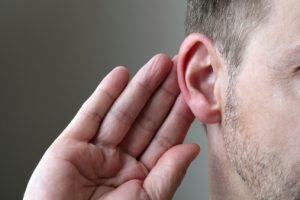
Unlike other animals, humans cannot reverse hearing loss, so once it’s gone, it won’t come back. But new findings suggest it may now become possible to reverse hearing loss.
Washington University School of Medicine may be a step closer to reversing hearing loss. The study was conducted on mice where researchers identified two signaling molecules which are necessary for proper development of the cochlea – a part in the inner ear that translates sound waves into nerve impulses for the brain.
“To eventually be able to restore hearing, we would like to be able to regenerate the sensory hair cells of the cochlea,” said senior author David M. Ornitz. He noted when the inner ear of animals such as birds, or fish gets damaged, their cells revert to progenitor cells to replace the sensory cells. He said while mammals are more complex and can hear a wider range of sounds, they cannot regenerate the sensory cells.
Proper ear development in mice was successful with the help of the two molecules – FGF9 and FGF20. For mice, their embryo’s form in 20 days, and it’s on day 11 where the inner ear turns on. By day 14 progenitor cells stop multiplying and differentiate to become adult sensory cells.
First author Sung-Ho Huh said that the sensory cells in mammals, including mice and people are fixed.
“This number is determined by cell division or cell death in early stages of development. In mice, that’s between about embryonic days 11 and 14. Once that developmental window is closed, the number of cells you have is all you get. There is no compensating for low numbers,” said Sung-Ho.
The new study reveals FGF9 and FGF20 send signals to their receptors, which promote growth of the sensory progenitor cells.
Ornitz said that learning how FGF signals regulate the progenitor cells is the key to restoring hearing.
Sources:
http://www.eurekalert.org/pub_releases/2015-07/wuso-nfh071615.php
http://nihseniorhealth.gov/hearingloss/hearinglossdefined/01.html